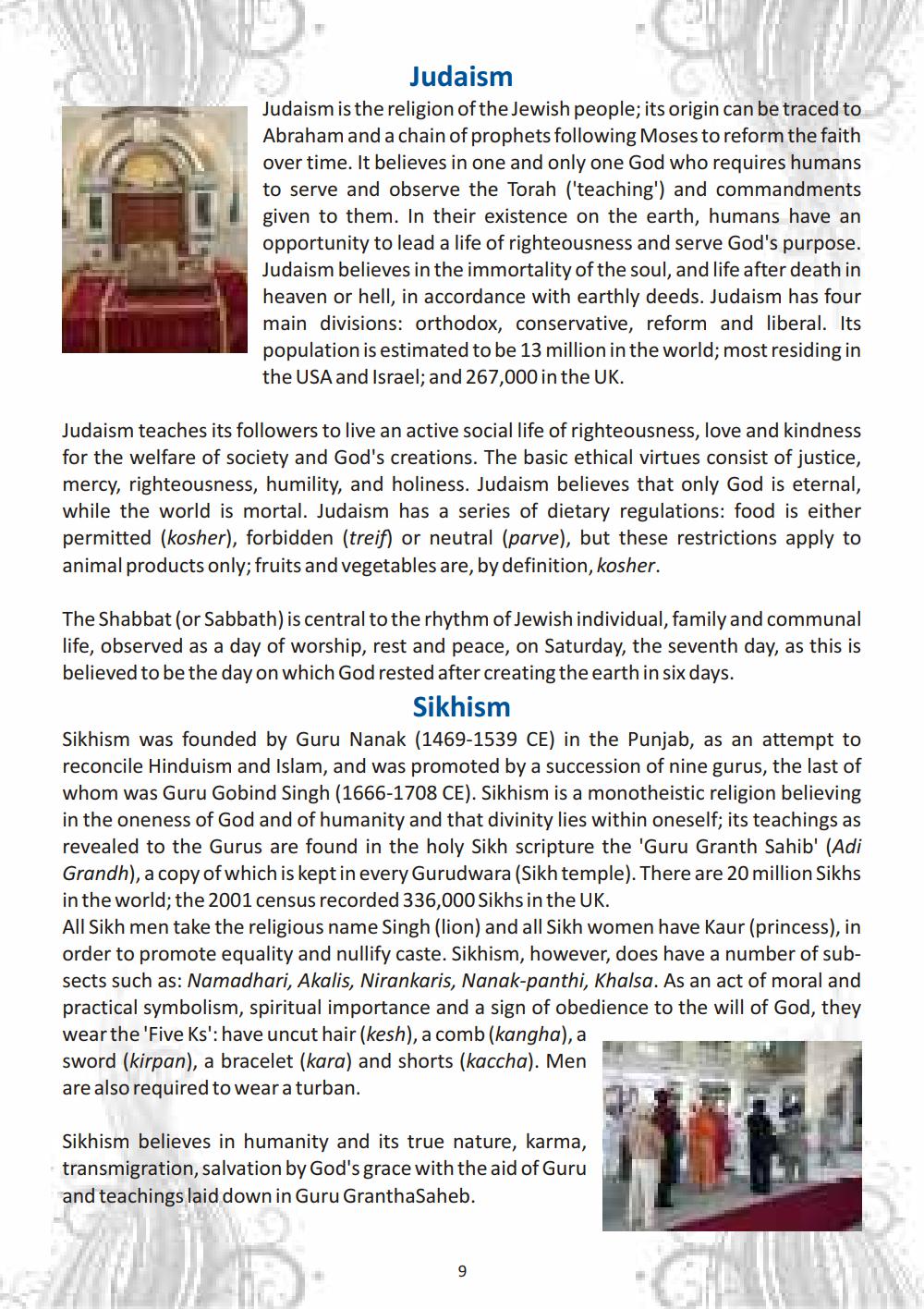Book Title: Jain Network 2010 11 Author(s): Natubhai Shah Publisher: UK Jain Network View full book textPage 9
________________ Judaism Judaism is the religion of the Jewish people; its origin can be traced to Abraham and a chain of prophets following Moses to reform the faith over time. It believes in one and only one God who requires humans to serve and observe the Torah ('teaching') and commandments given to them. In their existence on the earth, humans have an opportunity to lead a life of righteousness and serve God's purpose. Judaism believes in the immortality of the soul, and life after death in heaven or hell, in accordance with earthly deeds. Judaism has four main divisions: orthodox, conservative, reform and liberal. Its population is estimated to be 13 million in the world; most residing in the USA and Israel; and 267,000 in the UK. Judaism teaches its followers to live an active social life of righteousness, love and kindness for the welfare of society and God's creations. The basic ethical virtues consist of justice mercy, righteousness, humility, and holiness. Judaism believes that only God is eternal, while the world is mortal. Judaism has a series of dietary regulations: food is either permitted (kosher), forbidden (treif) or neutral (parve), but these restrictions apply to animal products only; fruits and vegetables are, by definition, kosher. The Shabbat (or Sabbath) is central to the rhythm of Jewish individual, family and communal life, observed as a day of worship, rest and peace, on Saturday, the seventh day, as this is believed to be the day on which God rested after creating the earth in six days. Sikhism Sikhism was founded by Guru Nanak (1469-1539 CE) in the Punjab, as an attempt to reconcile Hinduism and Islam, and was promoted by a succession of nine gurus, the last of whom was Guru Gobind Singh (1666-1708 CE). Sikhism is a monotheistic religion believing in the oneness of God and of humanity and that divinity lies within oneself; its teachings as revealed to the Gurus are found in the holy Sikh scripture the 'Guru Granth Sahib' (Adi Grandh), a copy of which is kept in every Gurudwara (Sikh temple). There are 20 million Sikhs in the world; the 2001 census recorded 336,000 Sikhs in the UK. All Sikh men take the religious name Singh (lion) and all Sikh women have Kaur (princess), in order to promote equality and nullify caste. Sikhism, however, does have a number of subsects such as: Namadhari, Akalis, Nirankaris, Nanak-panthi, Khalsa. As an act of moral and practical symbolism, spiritual importance and a sign of obedience to the will of God, they wear the 'Five Ks': have uncut hair (kesh), a comb (kangha), a sword (kirpan), a bracelet (kara) and shorts (kaccha). Men are also required to wear a turban. Sikhism believes in humanity and its true nature, karma, transmigration, salvation by God's grace with the aid of Guru and teachings laid down in Guru GranthaSaheb.Page Navigation
1 ... 7 8 9 10 11 12 13 14 15 16 17 18 19 20
